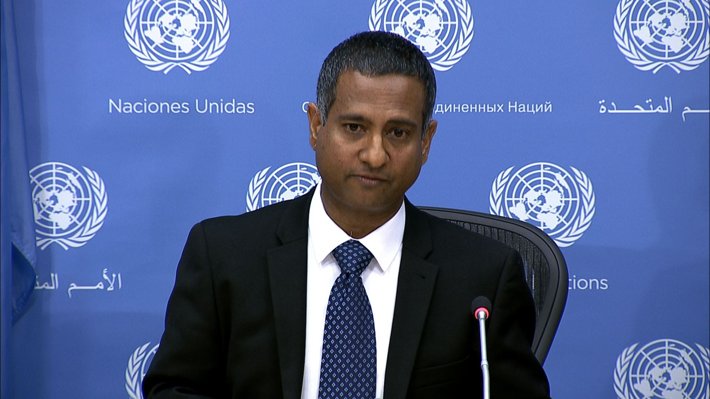FRESH AIR
UN gives Australia a to-do list to tackle antisemitism
September 25, 2019 | Naomi Levin

The first ever United Nations report on antisemitism has acknowledged the growth in global antisemitism, including on the far-right and far-left, and also from people who engage in apparently legitimate criticism of the Israeli government but mix this with hatred of Jewish people.
AIJAC Director of International and Community Affairs Jeremy Jones provided input during the preparation of the report, and the Executive Council of Australian Jewry was also consulted.
The report provides governments with a blueprint and recommendations on how to tackle the problem. Among its recommendations are several that could assist Australia to better tackle antisemitism, including state-led data collection to better document antisemitic hate crime, and the adoption of the International Holocaust Remembrance Alliance (IHRA) definition of antisemitism. (For more on this, see AIJAC’s previous blog “A matter of definition: Why the IHRA working definition of antisemitism has become more important than ever”)
Prepared by the UN’s Special Rapporteur on Freedom of Religion or Belief Ahmed Shaheed, it highlights contemporary antisemitism, including online hate, the increasingly blurred line between commenting on Israeli politics and antisemitism, and the Boycott, Divestment and Sanctions (BDS) movement.
Shaheed has come under criticism by some for not going far enough to condemn BDS, a movement which says it seeks to pressure a change in Israeli policy by boycotting Israeli businesses, academics, artists and officials, but which in reality is led by individuals who have called for the abolition of the State of Israel.
The report notes that international law recognises boycotts as a legitimate form of political behaviour. However, it “stresses that expression which draws on antisemitic tropes or stereotypes, rejects the right of Israel to exist, or advocates discrimination against Jewish individuals because of their religion should be condemned.”
Due to the fragmented and inconsistent approach to collating data, the report cannot provide comprehensive statistics on the frequency of antisemitic attacks.
This is one area Shaheed suggests needs to be improved.
The Executive Council of Australian Jewry documents antisemitic incidents in Australia, rather than government or law enforcement agencies. According to the report, “collecting accurate, disaggregated data is essential for enabling policy makers and law-enforcement authorities to understand the scope of the problem, discern patterns, allocate resources and investigate causes more effectively.”
Another area where there is room for Australian improvement is the UN’s recommendation that states adopt the IHRA definition of antisemitism, particularly as an educational tool.
Shaheed wrote that this definition has been recognised by the UN Secretary-General. He adds it is a useful tool in “communicating to public officials and the public at large widely-shared concerns about explicit and implicit forms that contemporary manifestations of antisemitism can take”.
Australia was accepted as an IHRA member in June this year. However, the Government did not immediately ratify IHRA’s definition of antisemitism, which is widely perceived as a thorough and comprehensive definition and has been adopted by numerous states, agencies and NGOs.
The report recommends states adopt the IHRA definition for use in “education, awareness-raising and for monitoring and responding to manifestations of antisemitism”. It is understood that discussions are in their preliminary stages at a federal level about how Australia could best do this. Some local institutions, including universities, have already adopted the IHRA definition to help combat antisemitism.
The report, however, cautioned against utilising the IHRA definition as a legal tool because it may inadvertently restrict legitimate political expression, a criticism many Jewish organisations reject.
The report was prepared following consultation with government agencies and non-government organisations from Europe, North and South America, the Middle East (outside of Israel) and the Asia-Pacific.
Australia was the focus of the Asia-Pacific remarks. However, the report also records concerns about Indonesia due to “pervasive antisemitic rhetoric, often reportedly stemming from popular associations of all Jews with Israel and its policies.”
Tags: Antisemitism, Australia, United Nations
RELATED ARTICLES

‘Optimism’ for Hamas to ‘exile’ their power and create a permanent ceasefire with Israel: Joel Burnie on Sky News

Australian government’s response to Iran-Israel conflict ‘disappointing’: Paul Rubenstein on Sky News

UNRWA feeds the ‘Palestinian delusion’ of no Jewish state: Dr Einat Wilf on Sky News




















